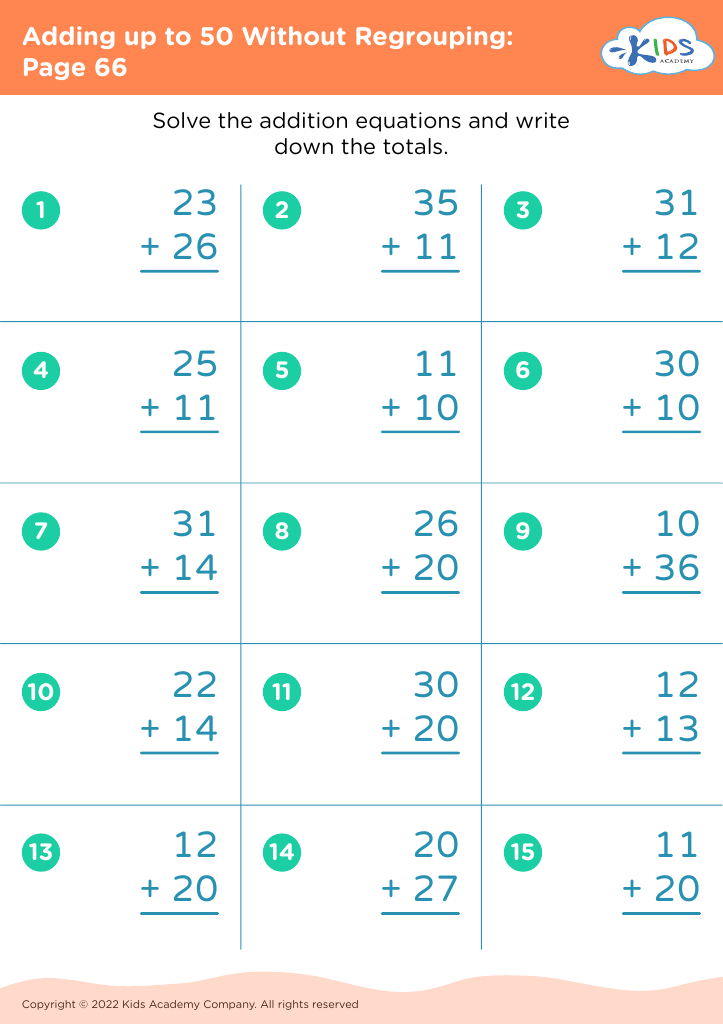Practice division Addition & Subtraction Worksheets for Ages 4-8
3 filtered results
-
From - To
Welcome to our engaging collection of division, addition, and subtraction worksheets designed for children aged 4-8! These interactive resources help young learners build foundational math skills while having fun. Our worksheets feature colorful illustrations and age-appropriate exercises that make practicing math concepts enjoyable and effective. Kids will develop essential problem-solving abilities as they explore various activities that promote understanding of division alongside addition and subtraction. Perfect for classroom use or at-home learning, these worksheets encourage independent learning and boost confidence in math. Discover the joy of learning and watch your child's mathematical skills flourish!
Parents and teachers should care about reinforcing practice in division, addition, and subtraction for children ages 4-8 as these skills lay the foundation for future academic success and critical thinking. During these formative years, children develop essential number sense and problem-solving abilities. Mastering basic arithmetic operations helps them build confidence in their math skills, fostering a positive attitude toward learning.
Additionally, introducing these concepts early encourages cognitive development, enhancing memory and reasoning. Practicing these operations through engaging activities like games, storytelling, or hands-on manipulatives makes learning enjoyable and memorable. This playful approach not only sustains children's interest in math but also involves them in their own learning journey.
Moreover, understanding these foundational math concepts supports future learning in more complex subjects, such as fractions, percentages, and algebra. By ensuring children have a solid grasp of addition, subtraction, and division, parents and teachers equip them with the tools to tackle real-life problems and make informed decisions. Ultimately, investing time and resources into early math education promotes a lifelong love of learning and nurtures the next generation of proficient learners and thinkers.























